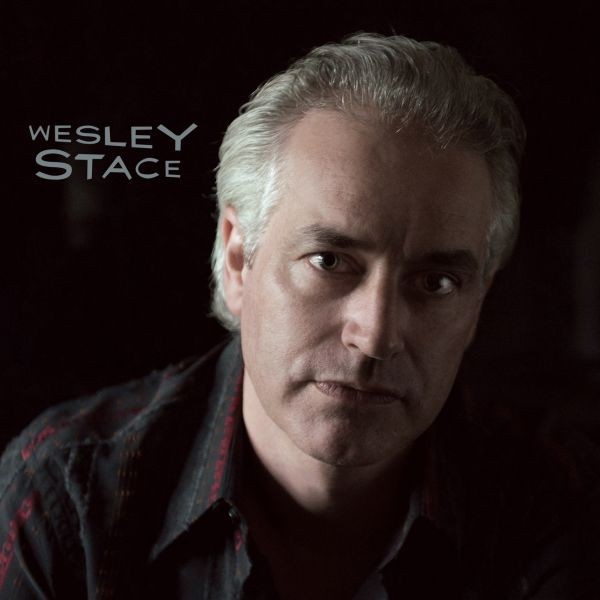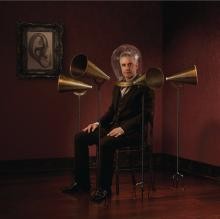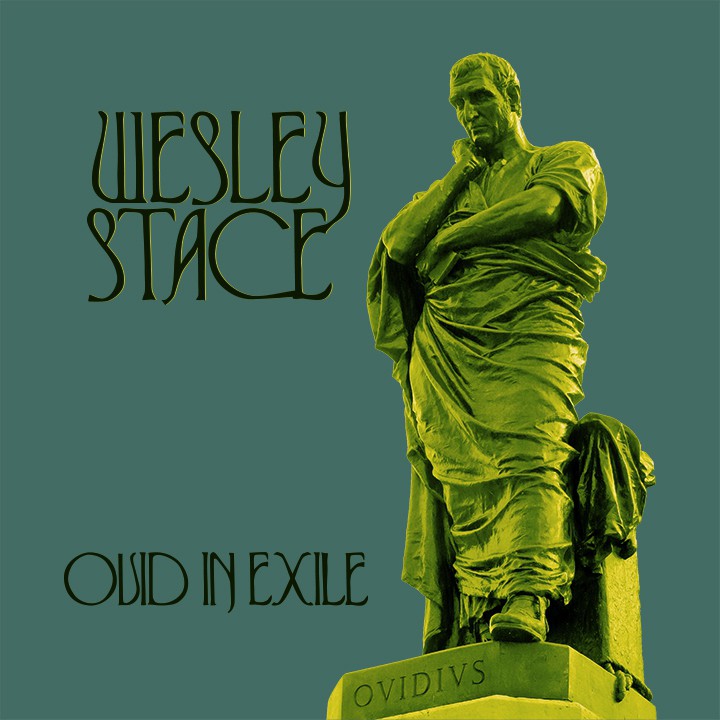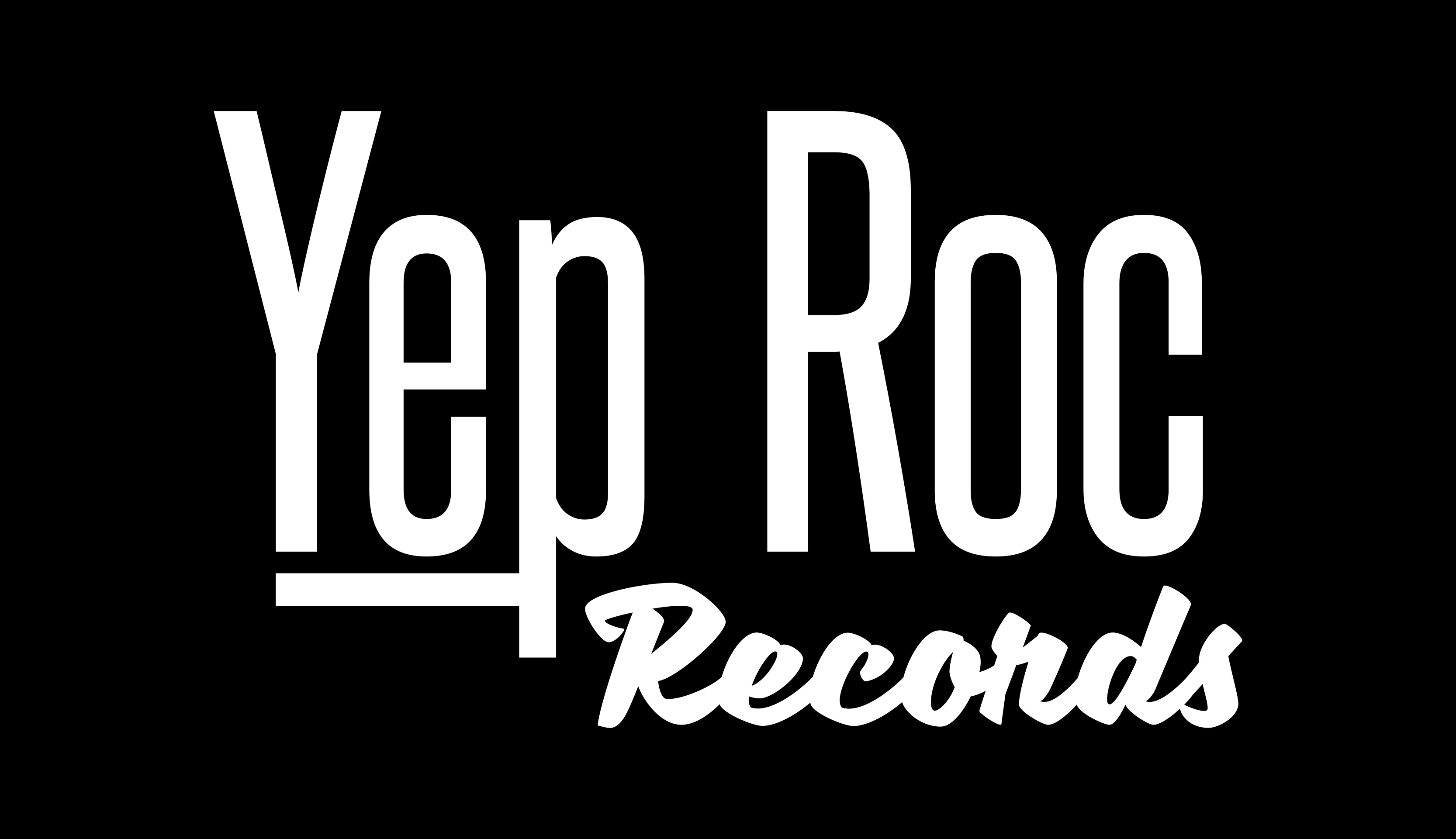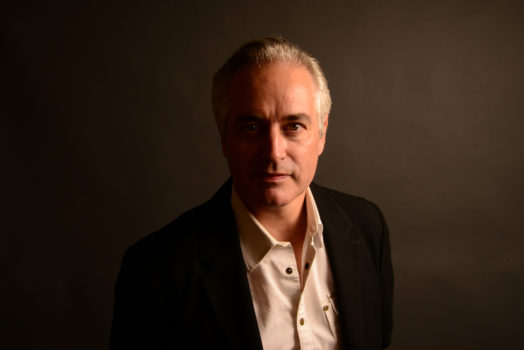
.........................................................
Born Wesley Stace, the man before you, as an adolescent, fell in love with ABBA and Bob Dylan in equal measure, but Bob won out and so he became a folk singer, who called himself John Wesley Harding, for the alt-rock generation. His songs were humorous and insightful and usually the smartest thing in any room they were played in. This persisted, through many record albums until Wesley Stace re-asserted himself as a fairly decorated author of fiction. In combative spirit, John Wesley Harding fought his way back out, made a bunch more records and became host of the Cabinet of Wonders series of events in NYC, where he played music and brought out a wild and ambitious array of authors and musicians and other performers, carving out a style of event that really ought to be the norm now for what you see when you go to a rock club, but it’s so cool that other people are scared to try it. Finally, Wesley Stace said, “No!,” slayed John Wesley Harding somehow, wrote more books, made records under his own name for the first time, co-wrote a bunch of brilliant songs with Eleanor Friedberger, and then came all this way, by land, by sea, by electronic device – via some recording sessions with The Jayhawks in Minneapolis – to entertain you, specifically. Helluva guy!
–Joey Sweeney, Philebrity (“Wesley Stace, in 211 words”: concert preview, 9/2016)
How did you decide on the title Wesley Stace’s John Wesley Harding?
My last album, Self-Titled, was the first I released under my real name. I’d written four novels as Wesley Stace and I thought it was time to bring everything under one banner. But the word didn’t seem to get out like I wanted, so I thought I’d somehow put both names in the title of this album.
As I was thinking about this, I saw “Jeff Lynne’s ELO”: he’s obviously using that designation to differentiate himself from Bev Bevan’s ELO or any other rogue version of ELO that may or may not be touring. It’s “Jeff Lynne’s ELO”: the only one that matters. And I jokingly thought that now I’d kind of broken up John Wesley Harding, somebody might assume that name and start touring as me, performing my songs just for the money, because that would be a real money spinner. So, if the audience gets muddled, at least they know Wesley Stace’s John Wesley Harding is the genuine article.
And, thirdly, sometimes a cab driver would say, “Oh, you’re playing tonight! What’s your name?” and I’d say, “John Wesley Harding”, and he’d go “I’ve heard of you,” and I’d say, “Thank you, but you may have heard of a record by Bob Dylan.” So I thought it was finally time to differentiate myself from Bob Dylan’s John Wesley Harding. So it’s Wesley Stace’s John Wesley Harding. There are literally hundreds of reasons for the album title, as there always are with album titles – and finally all those reasons converge and an unavoidable title presents itself and it was this one.
The album’s cover features a photo of you sitting in a chair, back to back with yourself, can you explain?
Without wishing to suggest I’m schizophrenic, I wanted a way to have two of me on the cover to go with the album title. Originally I looked at modern graphic ways to do this – a double exposure, perhaps – but then I came across this 1961 album, The Swingin’s Mutual by George Shearing and Nancy Wilson, with the two of them sitting back to back, holding each other’s albums, and it’s so witty and elegant, and simple really. I had to get the right chairs – that was very important – and shoot it right. And the fonts had to be perfect, because I wanted it to be a modern cover, not something that was just a pastiche, or looked like I was trying to make sixties music. And then I realized that I could switch the albums each one of me was holding: a John Wesley Harding cover on the Wesley Stace side and so on. And the colours had to be perfect. There’s a lot going on really.
How is this album different than your other records?
I’m a serial user of bands that I like. And I’ve done that in the past with the Decemberists; with The Minus 5; even the Bruce and Pete Thomas of the Attractions who were the core of the band on the first two records. And in this case, it’s the Jayhawks from Minneapolis. They’re hands down one of my favourite bands, so it was just a question of asking them.
We went to see them play in Wilmington, and as I was watching this great show I thought, “Oh I’d love to hear them sing this ‘Don’t Turn Me Loose’,” this Greenfield and Cook song I love that was a hit, maybe only in Holland in 1972. It was made for the Jayhawks to record. And then I thought, “What I’d like even more than that, is them to play it with all their jangle and their harmonies and their country rock, but with me singing: that would be great!”
Marc Perlman is an old friend. And Gary Louris and I got friendly a few years ago when he came to do the Cabinet of Wonders in NYC and I had him co-teach the class I was teaching at Princeton, and so I thought, I’m just going to ask them if they’ll make an album with me, because rock ‘n roll is all about knowing each other from dressing rooms over hundreds of years. And I asked and they said yes.
If you’re going to record with The Jayhawks I suggest that your first mission is to make life as easy for them as possible and so Minneapolis was the place to make the music. I picked some dates, got their advice and found a great studio, Flowers, run by Ed Ackerson (who has a prominent credit because his work was fantastic); we rehearsed for two days only, recorded for three days. Done. That was it. I then took the album back to Philadelphia (because I didn’t want to waste valuable musician time in Minneapolis doing my singing) and recorded the vocals with another old friend, Eric Bazilian from the Hooters: he has a vocal production credit, very well earned, because he had to listen to me singing a lot.
And then I sent those vocals to be matched up to the tracks and they were mixed by Ed back in Minneapolis and I went back on a little victory lap/listening party visit but he was doing such a great job at that point he didn’t really need me there. And that was that. So the album was made incredibly quickly in a very focused amount of time by a really great bunch of musicians: we got to make up some tight arrangements, but also to cut loose a little in the studio and, as you used to say, jam.
How did you approach writing the songs for this album?
I didn’t. I just always have a lot of songs. But, what I did do was carefully sift through all those songs to find the ones that I thought would be great for The Jayhawks, or The Wezhawks, as we started to call it. And so I listened to every song that I had, many of them quite recent, and picked 12, including the cover. And we did those twelve songs, and that’s it: everything we recorded is on the record. No outtakes. A couple had been previously recorded for the last album but didn’t make it because they didn’t fit that rather mellow mood, so I resuscitated “Let’s Evaporate,” that I co-wrote with Chas Cronk from the Strawbs, one of my favorite bands from the 70s/80s; and I had another crack at “Audience Of One”, that I’d done with a string quartet before but didn’t get quite right.
And then at the end of the song-picking, I wrote a couple of songs that I thought filled holes where the album needed holes filled: one was called “What You Want Belongs to You” and the other was “The Wilderness Years”: those two songs were bespoke for this project, but the rest were written before I knew the Jayhawks would be the band.
And what a band! Gary Louris is an incredible guitar player. Jayhawks fans know that, of course. But I think that’s generally underappreciated: he’s amazing. His arrangement ideas are great; his every idea was so tasty and original. I can show you whole little parts he built brick by brick. There was one point when he opened some synthy app on his iPhone and plugged it straight into the board to record that funny noise in the distance at the end of “Let’s Evaporate”: they were always great ideas. Tim [O’Reagan] is rock solid – no clicks were harmed in the making of this record – and Karen Grotberg is a beautifully understated piano player. And those harmonies – lots of three-piece harmonies on the record – are fantastic. And maybe Perlman is even the secret weapon on the bass. You gotta have someone in the band who doesn’t sing. And the whole thing is produced by “Gary Louris and Wesley Stace” because it became evident that that’s what was happening during the sessions.
Is there central theme or concept that runs through this album, and if so how does it relate to you as an artist?
It’s certainly not a concept album of any kind, except inasmuch as my songs generally are pointed in certain directions that they seem to keep pointing in: “I Don’t Wanna Rock’n’Roll” is my ongoing update on my suitability, or lack of suitability, to be doing what I keep continuing to go, which started with “The People’s Drug” many years ago; and “The Wilderness Years” is my continuing meditation on how to escape the symbolic influence of the Church – I literally went to school within the precincts of Canterbury Cathedral. But there’s no particular theme, no. It’s not about my breaking up with someone or losing a lot of money to a rogue accountant or anything like that: though I can certainly see the increased influence of my children in my writing, for example on “Remember Me”. There is very rarely a theme on any of my records. In fact, most of all I want all the songs to be their own little worlds and to be as different sounding, and meaning, as possible.
What are you most proud of about this album?
Well, that’s an interesting question. What I’m most proud of is almost certainly that it’s as ambitious an album as I could have possibly made, and to bring that in with the cast of characters, on budget is great: because I don’t think it in any way seems like we had any obstacles to creativity or imagination at all. And that’s how I like to do my work and my business. And it just sounds exactly like the album I wanted to make, but the fact is it was done in five days, and then the mixing took a little longer because we could be more leisurely. You know, that’s something to be proud of, I think. It’s wonderful to have an idea, and see it through, and now it’s done.
Also, I’m very proud of the song “Hastings Pier”, for one particular reason. We hardly knew that song when we started playing it, but we surrendered ourselves to the idea of it being quite a loose jam, and of course we did it late, and last, one night. And we did nine takes, but we ended up using Take #2 (with only one overdub, which was the harmony on Gary’s riff) rather than any of the later seven takes which were in some ways perhaps technically better, but in no other way an improvement. And there are some very magical moments on that song, that second take, that are simply because the Jayhawks are great musicians, used to listening to each other; and if you listen to the bass and the guitar mirroring each other early in the solo, or the piano figures at the end of that solo, then I think you’re hearing something lovely, and something I’d wish for my music, without knowing quite how to achieve it, because not many of my songs have such loose structures that allow for that. And it’s just the sound of grown-ups playing music, and trusting in the process, and I’m very proud that we recorded that song in that way and did that.
Who were some of your influences both musical or nonmusical?
Scott McCaughey is a great influence on me: his attitude to making music has inspired me ever since we first met, and before. You know, I find my contemporaries and friends – Kelly Hogan, Kurt Bloch – and the people with whom I work influences, that’s why I work with them, because I find them endlessly inspiring. In more classic terms, you know, all the obvious candidates: Dylan was inspiring when I started. But equally inspiring were John Prine and Loudon Wainwright. Loudon, the best guy ever, in my opinion, to stand in front of an audience and just play the guitar on his own. Steve Goodman may have been as good as him but I never had the chance to see him. So the American folkies came first. And then the British folkies.
But music tastes change and develop. I went through a massive prog phase, and now I find myself listening to Kayak, PFM and King Crimson. And I love a softer more mellow kind of record: The Soulful Strings or Gary McFarland’s soft samba. And I bet you can find all that on this album somewhere, though I don’t know where. I’m obsessed now with Barry White’s Love Unlimited Orchestra records: the best instrumental records ever.
And, also, a lot of people who pass through the Cabinet of Wonders! I’m very impressed how, whatever age and whatever vintage people are, that almost everybody brings it. Because they’re very good at doing what they do, and they enjoy doing it. And on the next show, I already know certain moments that are going to really thrill me, be it Hot Chip, Elvis Perkins or Suzzy Roche. There’s a lot of inspiration everywhere.
Besides music, what else inspires you creatively?
Books, as much as music. I’m inspired by soccer, or football, and the beauty of that as a sport, with all due respect to your exciting World Series. I am inspired by, definitely a lot of writers: the new Colson Whitehead novel is my Book of the Year: books everywhere. So, you know, there’s a lot of reasons to travel and look in bookstores and record stores and antique stores. Werner Herzog: everything he’s ever done I want to know about. The films of Powell and Pressburger, I’m known to be a bit obsessive about those. I’m a terrible collector of things really. I have just too many of everything. But not cluttered: neatly. Like it should be. So my head doesn’t explode.
On Tour:
Media:
Links:
WEBSITE FACEBOOK TWITTERYep Roc Discography:
